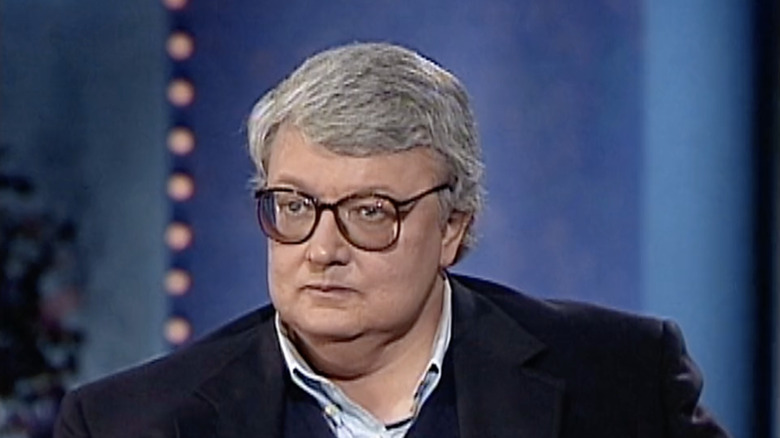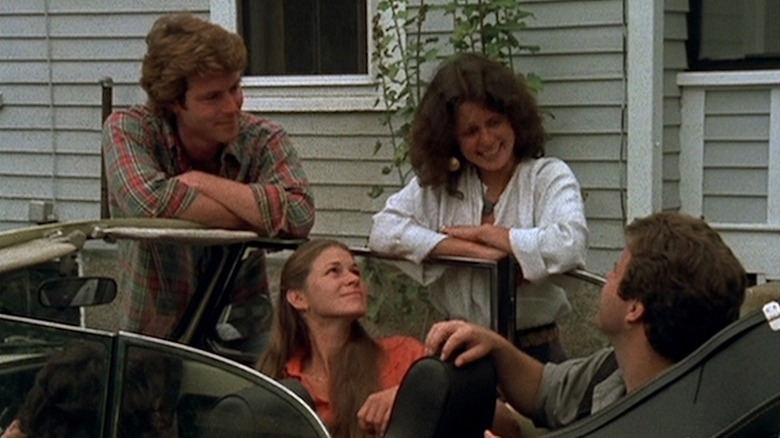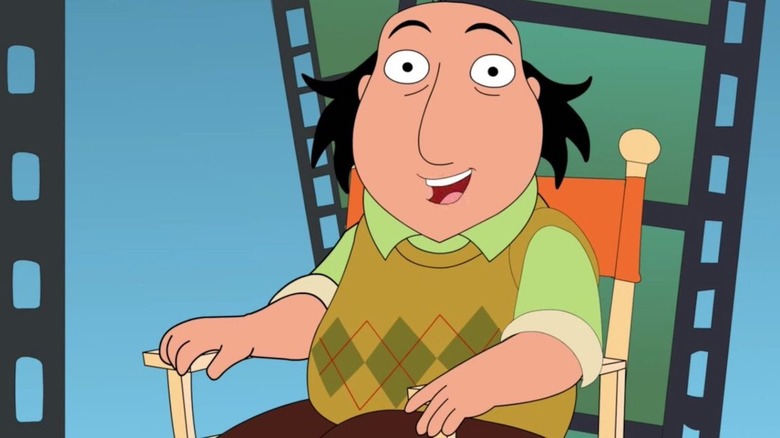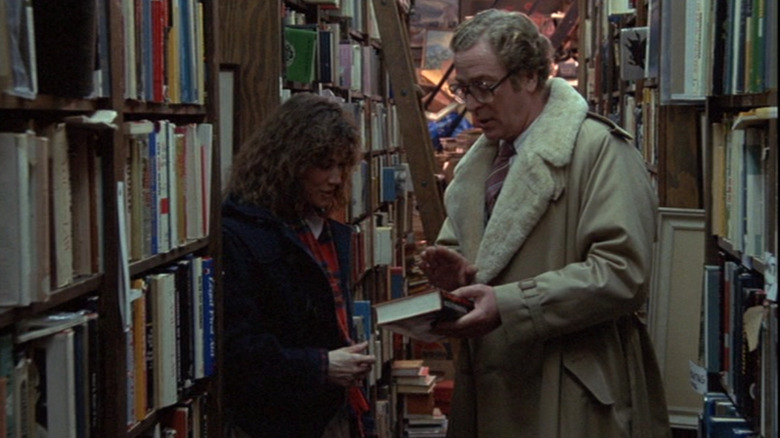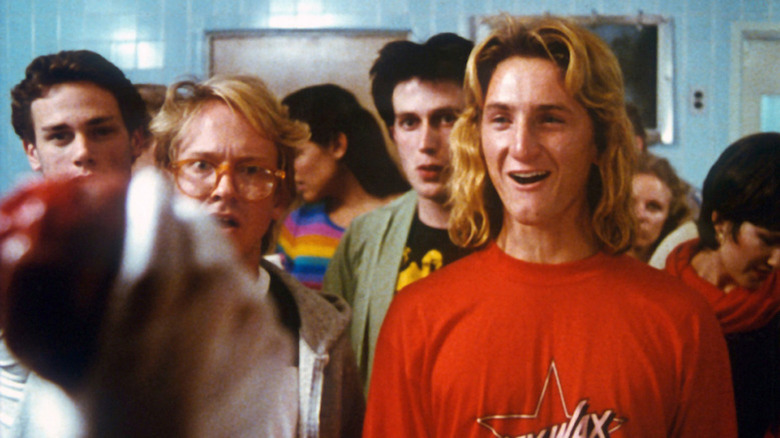Why Rotten Tomatoes Is Roger Ebert's Fault
Apologies to André Bazin, Pauline Kael, and Andrew Sarris, but Roger Ebert was unquestionably the most influential film critic of the cinema's first century. In fact, unless the media landscape is drastically altered over the next few years, he may also wind up being the last film critic who ever truly mattered.
I do not mean this as a put-down of my colleagues. If you actually read film criticism nowadays, you know that there's never been a more thrillingly diverse assortment of voices in this too-cluttered arena. Manohla Dargis, Justin Chang, Scott Tobias, Angelica Jade Bastién, and Bilge Ebiri are must-reads in this house, and I could name a few dozen more who are reliably incisive and original in their thinking. I don't have time to read all of the critics I respect, which is both a frustrating and good thing.
But be honest, do you actually read film criticism nowadays? Do you click on a new Dargis essay with the same fervor you used to tear straight to "The Current Cinema" whenever the latest issue of The New Yorker hit your mailbox? Or do you treat a movie's Rotten Tomatoes score as the defining metric of its worthiness?
In the 25 years since its inception, Rotten Tomatoes has established itself as the ultimate arbiter of filmmaking quality. One-third of adults consult the site before buying a movie ticket. If a film has been deemed "fresh" — or, even better, "certified fresh" — it at least remains in the running as a moviegoing option. If it's been declared "rotten" (i.e. dropped below the 60% "fresh" threshold), and isn't a pre-sold franchise film or a teen-skewing horror movie, it's pretty much dead.
This does a profound disservice to filmmakers who work not from a proven template, but from the heart. Their movies might not hit the mark, but the feelings they conjure up over two hours could linger with you longer than the initial disappointment. These films might wind up being what's called "growers," works that reveal themselves in the weeks and months after the initial viewing.
But our culture has no room for "growers" anymore, thanks to Rotten Tomatoes. And this is Roger Ebert's fault.
The rise of Roger
1975 was a watershed year for Roger Ebert. The Chicago Sun-Times columnist became the first film critic to win a Pulitzer, and he debuted his PBS-syndicated movie review show "Sneak Previews." For the latter, Ebert was paired with Chicago Tribune critic Gene Siskel, and the duo quickly struck up a quarrelsome chemistry as, once a week, they hashed out their feelings on four or five new releases.
Early on, "Sneak Previews" was a godsend to smallish film distributors. Because there typically weren't four or five studio movies opening every weekend (unless you lived in a major media market like New York City, and even then), the duo was able to focus on smaller, less mainstream movies. This was when they proved they loved movies more than hearing themselves talk (which is significant because these guys could be conceited jackasses). They were prominent champions, on a national scale, of John Sayles' "Return of the Secaucus 7," Errol Morris' "Gates of Heaven" and Jim Brown's "The Weavers: Wasn't That a Time!" They put scrappy, easily brushed-aside movies on the radar right as video stores became a thing and the country's televisions made room for pay-cable film channels like HBO and The Movie Channel. So even if these movies never played anywhere within driving distance, you knew you could probably catch them via video or cable.
This was the good of "Sneak Previews," and for a long time, I've argued that this good outweighed its evil. But when I look at the damage to the discourse done by Rotten Tomatoes, I'm not so sure.
The thumbification of film criticism
For me, the most appealing aspects of "Sneak Previews" were getting to see film clips of new movies long before they turned up in my local video store, and watching Siskel and Ebert tear into each when they vehemently disagreed on a movie (sometimes they tore into each other when they agreed, which was perversely enjoyable, too). But for filmmakers and especially publicists, the money moment of each episode came at the end when the duo assigned each movie a "Yes" or "No." This was more succinct than anything network morning show blatherers like Gene Shalit and Joel Siegel could come up with, but it lacked verve. "Two Yesses" didn't set the world afire as a poster pull-quote. So when the pair found fame via their televised sparring and landed a lucrative, non-PBS syndication deal, Ebert suggested they abandon the Yes/No model in favor of a Roman emperor-inspired thumb rating.
Thumbs up. Thumbs down.
It's worth noting that almost every big city paper had at least two film critics on staff at this time. The chief critic handled the splashy new releases, while the second stringer surveyed the dregs. And because the local newspaper was the best way to stay current, people read what the publication's critics had to say. These people mattered.
But once "Siskel and Ebert" hit the national airwaves in 1986, their influence waned. And while viewers enjoyed the vitriol, the payoff came in the closing minutes when the Chicagoans' thumbs turned up or down.
Once upon a time, a good review could put you off a movie
To be fair, Siskel and Ebert were clearly aware of their gimmick's limitations. They would place conditions on their thumbing ("a lukewarm thumbs up"), but these conditions never made the poster. Once a thumb went skyward, it made the poster. And if both thumbs went up, the honor emblazoned the top of the ad and led every TV commercial.
This all-or-nothing approach was particularly valuable to publicists (and still is). No need to parse reviews for an ellipses-enabled sentence of praise, or highlight an unsexy three or three-and-a-half-star take. The thumbs were definitive. So when the whole world went online in the 1990s, brazenly opportunistic entrepreneurs sought to turn the entire craft of criticism into a game of thumbs.
As a cinephile, there is nothing more pleasurable than reading Pauline Kael work through her thoughts on a movie she kinda likes. It's a journey. Her review of Woody Allen's "Hannah and Her Sisters" is a classic of this form. "It's likable, but you wish there were more to like," she writes before skewering the director as a weirdo who romanticizes repression. This review would merit a "fresh" rating on Rotten Tomatoes, but that "fresh" doesn't convey Kael's spikily articulated revulsion to Allen's entire aesthetic.
Kael died at the dawn of the internet (and never got within finger-tapping distance of Twitter, which, since we're doing binaries, is either a blessing or a blight), but Ebert, despite a cancer diagnosis that would rob him of speech, lived to reinvent himself as a sagacious blogger on topics that extended well beyond movies. His writing — which, as is true for most weekly pluggers, varied wildly in quality — became sharper. He also embraced the influx of new voices flooding in from Usenet and elsewhere, and encouraged those he found fascinating (I was remarkably fortunate to land in this camp).
Think with your brain, not your thumb
Alas, Ebert's loss of voice meant the end of his television career. And when he holstered his thumb, publicists scrambled to fill the pull-quote void. Shockingly, they did not immediately embrace Rotten Tomatoes, and I'm not entirely sure why. Old-school publicists loathed the internet (trust me on this), and they tried to pass this opprobrium on to their underlings. It didn't work. They found us, and compromised us (you can also trust me on this). And once they took a gander at the site's traffic and came to their venal senses, they turned the Tomatometer into one mighty, amalgamated thumb that forever points up, provided you've the bread to pay off low-level film critics who've brayed their way into the ludicrously unmoderated pool of corrupt consensus.
Ebert was, especially late in life, an explorer. He was as opinionated as ever, but refreshingly open to being wrong. But as he approached the unexplored country with uncommon grace, his legacy spread like kudzu over a community he cherished, ensheathing the next generation in a deadening tangle of brain-dead, binary bulls**t. Up. Down. Fresh. Rotten.
No.
The thumbs were good business, but they turned regular moviegoers into quip machines and films into disposable content. And now we've got a horde of self-proclaimed critics who are paid to review movies to juice the Tomatometer. My only hope is that people, at a certain point, will miss thinking for themselves. Cognitive dissonance is a wonderful thing, and it's especially fun if you've marshaled facts and carefully considered thoughts to return fire. To this end, if you want to get outraged over a well-considered take that is just plain wrong, your first stop should be Roger Ebert's one-star review of "Fast Times at Ridgemont High."
